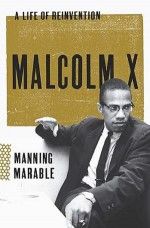Pioneering Colgate Professor Remembered in Book Panel Discussion

On Monday, October 24 at 7:30 p.m. in Love Auditorium, students, faculty and members of the Colgate community gathered to hear the second of a two part celebration of the life and success of Professor Manning Marable. Professor Marable was a well-established author and outstanding contributor to a multiplicity of disciplines at Colgate University. Most notably, Marable is credited as the founder of the Africana and Latin American Studies program during his time on the faculty from 1983 to 1987. Organized by multiple departments, faculty and administrators, the day of celebration marked Marable’s achievements by a 4:15 p.m. keynote address by Clayborne Carson and the 7:30 p.m. panel discussion.
Marable’s final book, Malcolm X: A Life of Reinvention is a compelling biography which redirected the arguments regarding the challenging political leader and was the topic for the second event. The book, published only three days after Marable’s death on April 1, 2001, evoked the discussion of three accomplished scholars. Assistant Professor of History at Lehman College Robyn Spencer, Assistant Professor of History at Dartmouth College Russell Rickford and the Esther Raushenbush Chair and Professor at Sarah Lawrence College Komozi Woodard brought their individual insights to this powerful work. Spencer and Rickford, both students of Marable, spoke generously about Marable’s influence and mentorship.
After an introduction of Professor Marable and the three panelists by Professor of Sociology Rhonda Levine, Spencer opened the discussion. She spoke of her immediate purchase of Marable’s Malcolm X biography, but her inability to read the work in the face of her grief over her deceased mentor. When she began to read the book in preparation for the lecture, she found three historical frames through which Marable had written the work. The first, which she called recreation, dealt with Marable’s ability to bring Malcolm to life in historical moments.
She repeated the phrase, “I saw him,” emphasizing the reframed portrayal of Malcolm X which Marable brought to life in settings, relationships and in the overarching theme of political oppression. The second frame was reinvention, an obvious theme of Marable’s work, which depicted Malcolm’s transition, struggle and self-doubt. Finally, Spencer discussed Marable’s portrayal of organization, both within the nation and overlapping and overarching ideology.
Next, Rickford took the floor by introducing two passages of Malcolm X indicative of “what Manning was up to” in writing this work. For Rickford, Marable rose above the harsh criticisms of his book by searching “for a usable past.” He simultaneously resurrected Malcolm X as a restorer of black history and politicism in a global context and searched for a new “language” within which black Americans could articulate and understand racism politically. Rickford drew connections between both Manning and Malcolm and indeed saw this search for a new “language,” one with which both influential African American intellectuals struggled.
Finally, Woodard pristinely concluded the individual comments by noting Marable’s “rethinking” of Malcolm X. Fundamentally, Woodard believed that Marable accomplished an amazing feat by asserting the seriousness of his work. Woodard coined this the “legitimacy of Malcolm X.” It was necessary for Marable to broaden the discussion of black historical individuals to show that the struggle for African American history exists.
“Black people are just as complicated as other people,” Woodard said. “Scholarship is framed.”
Therefore, he believed, Marable opened a precedent for academia, one that must be upheld for generations to come. Woodard focused in on Marable’s depiction of the spiritual disorientation of white supremacy and how, therefore, Malcolm X became beyond a political leader. Malcolm reframed the mindset of black America by encouraging ideas such as, “You deserve better than this” and that the situation is, “not just bad; it’s unacceptable.” Yet, Woodard did not cease the conversation there. He went on to assert the need to take both Malcolm and Marable’s work and apply it to modern day “citizenship.” Thus, Marable’s work was not only the reinvention of Malcolm X but also has the potential to become the “reinvention of human rights.”
Though each speaker spoke individually and in his or her own frames of reference, there was certainly an active conversation between each argument. Each point spoke to the others, both directly and indirectly. Overall, the great passion and admiration each panelist possessed for the late Manning Marable was apparent in the careful and intellectual nature of this discussion.
Contact Taylor Fleming at [email protected].






